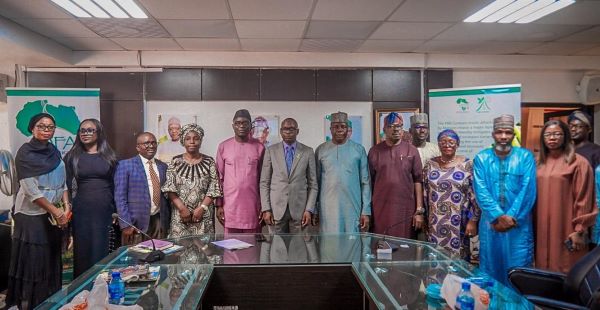Nigeria’s Minister of State for Health and Social Welfare, Dr. Iziaq Adekunle Salako, has reaffirmed the Federal Government’s commitment to leveraging biotechnology as a transformative force in the nation’s healthcare system. He also addressed persistent public concerns about the safety of Genetically Modified Organisms (GMOs), encouraging Nigerians to embrace the innovations biotechnology offers.
Speaking at a sensitization workshop on Biotechnology and Biosafety held Tuesday at the Federal Secretariat in Abuja, Dr. Salako described biotechnology as “a critical pillar” for improving health outcomes and accelerating national development.
“Biotechnology opens doors to innovative diagnostics, therapeutics, immunotherapy, regenerative medicine, and the production of vaccines using recombinant DNA technology,” he explained. “This is how we can improve maternal and child health, tackle endemic diseases, and enhance the overall quality of life.”
He emphasized that Nigeria must not fall behind in a world rapidly advancing in scientific innovation—particularly in areas addressing malnutrition, disease burden, and the urgent need for a more resilient healthcare system.
In response to ongoing skepticism about GMO safety, the Minister was firm: “More than 2,000 scientific studies conducted over the past 30 years confirm that GMO foods are as safe as conventional ones—and in some cases, even safer.”
Dr. Salako cited the strong global scientific consensus, referencing endorsements from the US National Academy of Sciences, the Union of German Academies of Sciences and Humanities, and a 2012 joint statement by 110 Nobel laureates affirming the safety of biotech crops.
“Critics must bring peer-reviewed evidence, not fear,” he stated. “We are committed to policies grounded in facts, not fiction.”
Reiterating President Bola Ahmed Tinubu’s Renewed Hope Agenda, the Minister underscored the government’s vision to position Nigeria as Africa’s biotechnology hub and a leader in health innovation.


